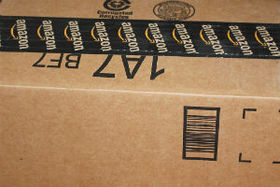5 Tips to Take Your Daily Deal Startup Off the Ground
Wednesday, July 17, 2013

The competition in the daily deal business is very tough. Dozens of daily deal websites are hunting for merchants’ and consumers’ attention in almost any product or service niche. The most popular segments of the market, such as restaurants, salons, spas, things to do and nightlife, are densely occupied by the industry’s giants Groupon, LivingSocial and other deal operators. At the same time, daily deals customers do not seem to care about branding and they are susceptible to good deals regardless of which company facilitates it. Besides, merchants are always in search for a low-cost way to get new customers and reward regular customers for their sales. So deal companies that provide a good user experience are still in demand among both consumers and merchants. This fact and other benefits provided by the daily deal concept continue to draw new startups into the daily deals space.
Unfortunately, potential and accessibility leads to saturation. The existence of oodles of daily deal companies aimed on the same target audience and offering similar value propositions is the biggest problem to overcome while starting your own deal business. Here are 5 things to consider for building a successful daily deal company in the long term:
1. Select a narrow niche.
No matter which prominent idea you are going to put into basis of your future e-business, most likely there are many others who had the same idea before and who already implemented it in practice. These businesses are several steps ahead of you and you can overstrain yourself if you try to outdo them on the initial stage. It is not possible to accomplish all your goals instantly. That is why it is better to split your idea into smaller segments in order to narrow your focus and to reduce the competition from the outset. Many businesses, that are among the largest world’s companies today, have started from the humblest beginnings. Amazon, a multinational eCommerce company and the largest online retailer in the world, launched as an online bookstore. An international deal-of-the-day corporation Groupon also started from offering half-price deal for pizzas for the restaurant on the first floor of its building in Chicago. So do not neglect this proven strategy: focus on a small niche, became successful, and then evolve by expanding into other areas.
2. Focus on attracting loyal customers and building your community.
Do not chase trends. Lots of new trends spring up in the eCommerce space every year but not all of them actually lead to the long term success. Some types of deal promotions that work perfectly for some businesses do not work for others. Many companies monitor latest market tendencies and try to adjust their business strategy accordingly. The competition in the top trending deal market segments is even more tight. If you follow general market behaviour you may lose focus on your business goals and the identity of your brand. It is more important to consolidate your position in your niche and to build a base of your faithful customers even if this base is not very big at the beginning. Offering high quality service and good deals are the major keys to the loyalty of your users. However, cultivating a sense of community around your business is also matters. Make your business social by integrating it into popular social networks and maintaining active interaction with your customers. Social media provides a comfortable friendly space for people, where they can share their experience, recommend your deal offerings to their friends and engage one another to create a loyal community around your brand.
3. Collect information and keep in touch with your customers.
Building your own eCommerce community means maintaining personal contact with your existing and potential clients. Each interaction reduces the distance between you and your users and fosters their long-term loyalty to your brand. Personalization requires gathering as much data about your customers as possible. Do not limit your informational base with just a basic facts, such as email, phone number, location and date of birth. There are many other significant pieces of data you can collect and use, including purchase dates and amounts; referral channels that brought buyer to your deal site; profession and skill level; area of interests and so on. You can get this by asking clients when registering or subscribing to your website, by sending email surveys or by conducting polls on Facebook, LinkedIn and other social media platforms. A rich database is a powerful tool for increasing efficiency and relevancy of your deal business. It is needed not only for keeping in touch with your customers. By using this data you can create more customized experience for each user and to run targeted promotional campaigns.
4. Use appealing and descriptive design to instill confidence into your customers.
Daily deal providers, as well as other eCommerce companies, offer initially virtual products or services and this hinders them in comparison to the brick and mortar stores. Customers can’t touch or taste what they are selling while most people prefer to experience something in person before making a purchase. That is why it is not only an aesthetic design of the deal websites that matters but also the way product information structured and represented on the sites. To compensate the lack of tactile sensation and to inspire confidence in online buyers it is critical to categorise deals properly and to provide comprehensive images, detailed specifications along with an appealing description of the best features that distinguish each offered product or service. Take a look at the product pages on Groupon, Woot or other leading deal operators to get some ideas how to enhance your own website.
5. Website performance matters.
A slow website is a highly irritating factor that may drive visitors away from your site. A load time of 2 seconds is usually considered as the absolute minimum standard and every extra second of response time increases the bounce rate. A study by Borland, a Micro Focus company, found that even minor delay in site speed can have a significant influence on page views, customer satisfaction and conversion rates. A one second delay in website response time results in 11% decrease in page views, 16% drop in customer satisfaction and 7% fewer conversions. 40% of online shoppers will abandon the site if the loading time is over 3 seconds. So, while developing the design and selecting a hosting provider for your daily deal site, you should not forget to take care of the speed and stability your website. If you choose a ready-made software platform for building your deals site, be sure that it will be able to cope with your traffic demands without sizable delay in load times.
These are just several tips to consider while starting your deal of the day business. If you have some great ideas regarding what else is vitally important for daily deal startups, please share your thoughts in comments.



